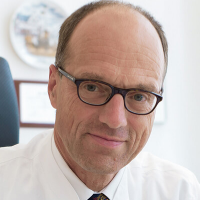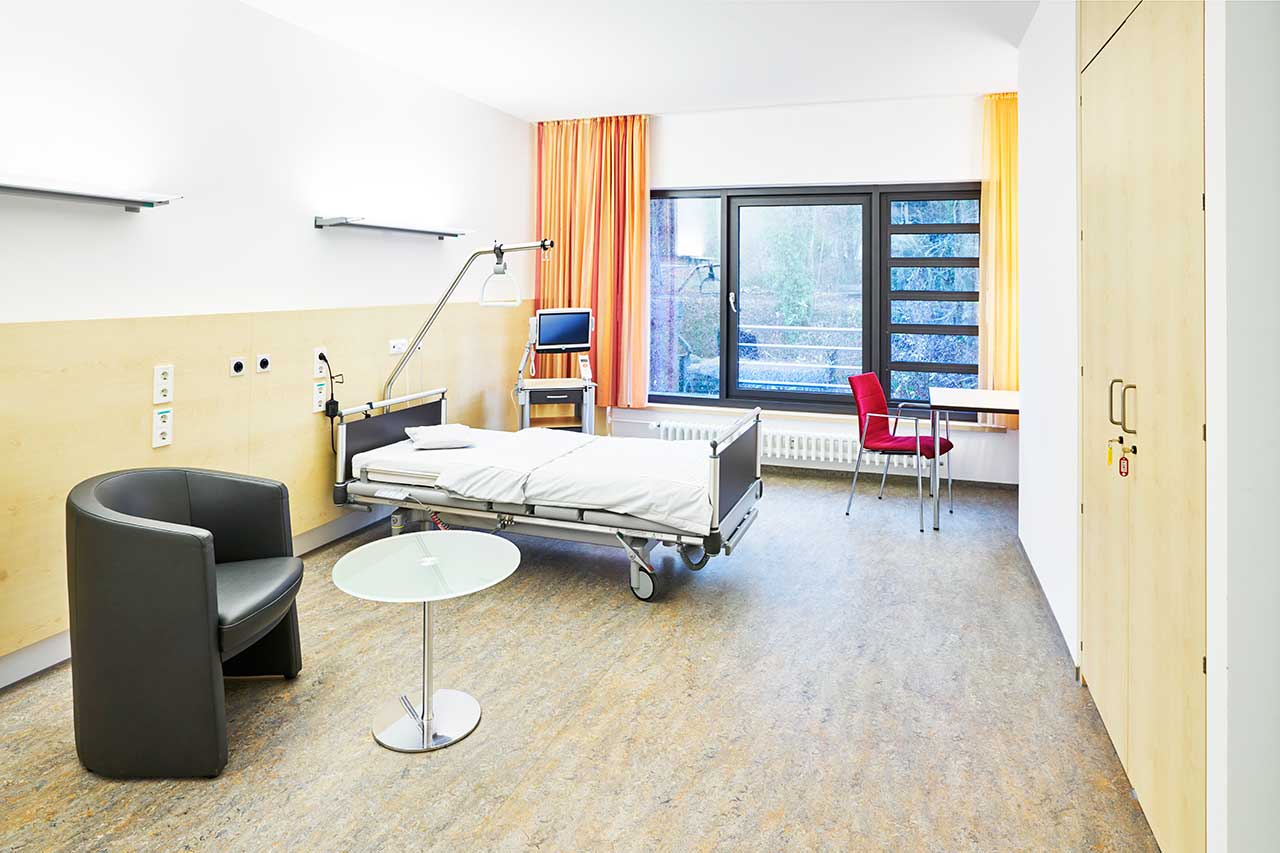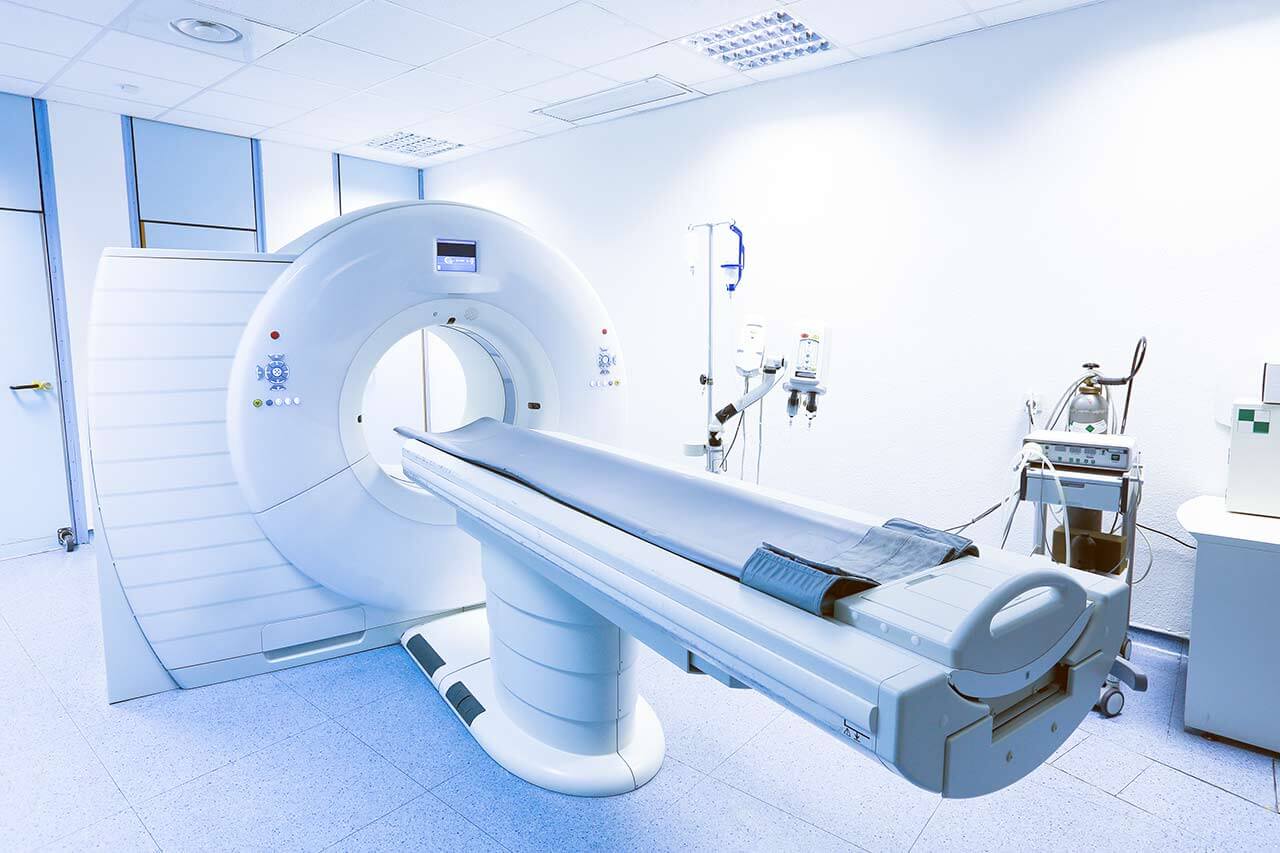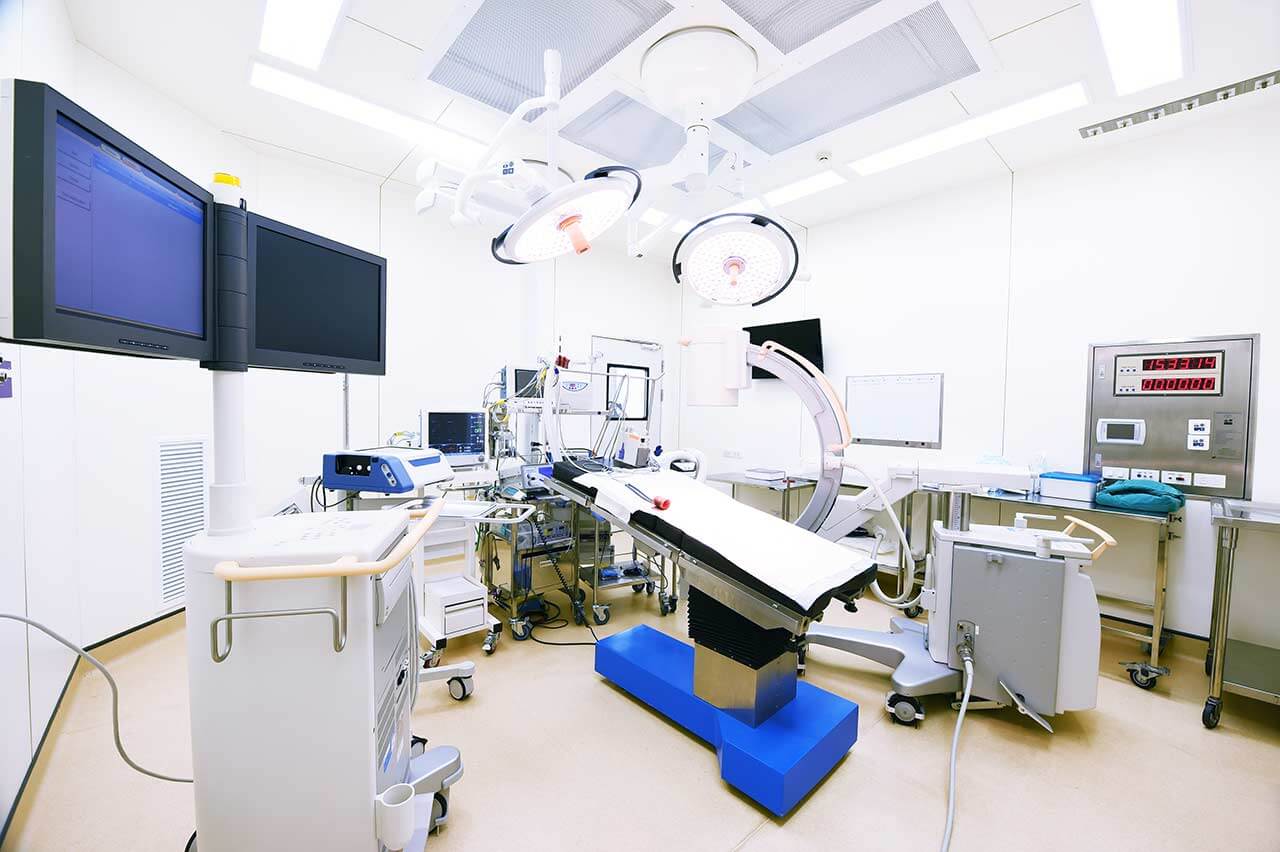
The program includes:
- Initial presentation in the clinic
- clinical history taking
- physical examination
- general otolaryngological examination
- laboratory tests:
- complete blood count
- indicators of inflammation (CRP, ESR)
- x-ray examination
- ultrasonography
- biopsy and microbiological examination (on indication 1500 €)
- nursing services
- consultation of all leading experts
- development of individual treatment plan
- written statement
Required documents
- Medical records
- US scan (if available)
- Sialography (if available)
Service
You may also book:
 BookingHealth Price from:
BookingHealth Price from:
About the department
The Department of Adult and Pediatric Otolaryngology, Head and Neck Surgery at the University Hospital Erlangen offers all the possibilities of modern medicine for the prevention, diagnostics and treatment of ENT diseases. The department also performs surgical treatment of head and neck tumors, the quality of which is confirmed by the certification of the German Cancer Society. The range of medical services is complemented by the diagnostics and treatment of hearing, voice, speech and swallowing disorders. Special attention is paid to the placement of hearing aids, cochlear implantation, middle ear surgery, skull base surgery, paranasal sinus surgery, salivary gland surgery and interventions with the use of computer navigation. The department admits adults, elderly patients, as well as children of all age groups. The department has 80 planned beds for inpatients, as well as 6 beds in the intensive care unit. Surgical interventions are performed in six state-of-the-art operating rooms equipped with the most advanced surgical instruments and computer technology. The highly professional team of doctors with colossal clinical experience takes care of the patients' health. The department's doctors successfully apply their progressive knowledge and all available technical resources to effectively restore the health of patients. The department is headed by Prof. Dr. med. Dr.h.c. Heinrich Iro.
The department includes specific sections specializing in ultrasound diagnostics, audiology, vestibular diagnostics, neurophysiology, allergology and sleep medicine. All these structural units have their competence and perform an examination if a particular pathology is suspected.
Ear microsurgery is an important area of the department's work. The department annually performs about 700 operations on the middle ear. Prior to a surgical intervention, the patient undergoes a comprehensive diagnostic examination. The specialists use sparing microsurgical techniques in their clinical practice, namely operations using a microscope or a binocular loupe. Most of these interventions are performed through the external auditory canal and leave no cosmetic defects. The department also demonstrates excellent results in the field of hearing aids and cochlear implantation in adults and children. The doctors have a perfect command of the techniques of computer-assisted surgery, which are widely used in the department.
The department also specializes in skull base surgery. It performs over 800 skull base surgical interventions every year. The department's doctors most often perform endoscopic interventions for chronic inflammatory processes, remove benign and malignant tumors of the paranasal sinuses and orbit, and also carry out endoscopic repair of defects in the brain meninges, removal of angiofibromas, acoustic neuromas localized in the cerebellopontine angle, etc. The department uses advanced computer neuronavigation, which provides accurate visualization of the surgical field and monitoring of the patient's health condition during the operation. The department currently has four advanced electromagnetic navigation systems: three Fiagon systems and one Storz device. These high-tech devices are complemented by the Zeiss OPMI Pentero surgical microscope. The innovative technologies make it possible to perform highly effective and safe surgical interventions in the skull base, eliminating damage to vital anatomical structures.
The department's doctors are proud of their outstanding achievements in the treatment of acoustic neuroma, which is one of the most common benign brain tumors. When admitted to the department, the patient undergoes an examination, including hearing tests, MRI and CT scans. In most cases, the most informative and reliable diagnostic method is MRI. This diagnostic test allows the doctors to accurately determine the size and location of the neoplasm. If the diagnosis is confirmed, the attending physician develops the optimal treatment regimen. In the case of localization of an acoustic neuroma in the area of the internal auditory canal, the department's specialists often give preference to monitoring in dynamics. Doctors periodically carry out MRI scans to assess the growth rate of a neoplasm. If there are no significant changes in the size of the tumor, doctors do not recommend surgery. If there are signs of tumor growth, specialists consider various options for surgical resection of the acoustic neuroma. The surgical procedures are performed using computer navigation. In some cases, radiation therapy is the first-line treatment. It is usually used in patients with contraindications for surgery and in elderly patients with high health risks. It is worth noting that the department's specialists have vast experience in this medical field, as evidenced by over 1,300 successfully performed operations to remove neuromas.
Another important focus of the department's clinical activities is on the diagnostics and treatment of malignant head and neck tumors. The department's specialization includes the treatment of cancer of the lip, nasopharynx, larynx, salivary glands, paranasal sinuses, scalp and neck, as well as carcinomas of the oral cavity, larynx and tumors of unknown primary. To confirm the diagnosis and determine the stage of cancer, the department's doctors use such diagnostic methods as ultrasound examination, CT, MRI, PET and PET-CT, scintigraphy and biopsy with histological examination. After confirming the diagnosis, an individual treatment regimen is developed at an interdisciplinary tumor board. As a rule, the treatment involves the use of surgical tumor resection, radiation therapy, chemotherapy, and antibody therapy. The patients also receive the help of highly qualified psychologists, since a diagnosis of cancer can cause a severe psycho-emotional state. After completing the course of treatment, the patient receives the necessary medical care and regularly undergoes follow-up examinations to exclude or early detect a recurrence.
The department's medical team includes highly qualified pediatric otolaryngologists who get along well with young patients and provide them with the best possible treatment. The specialists in the field of pedaudiology carry out a thorough examination of the hearing organs in children and, with any pathologies detected, they prescribe the optimal therapy. Surgical interventions range from removing tonsils to correcting complex ENT malformations, namely, ear reshaping, removal of cysts/fistulas in the neck and ears. The department has unique experience in performing operations for the treatment of choanal atresia and other laryngeal and tracheal pathologies in children.
The department's key clinical focuses include:
- Ear and temporal bone microsurgery
- Placement of implantable hearing aids
- Cochlear implantation in adults and children
- Treatment of salivary gland stones and inflammation
- Endoscopy
- Extracorporeal shock wave lithotripsy
- Treatment of acoustic neuromas
- Surgical treatment using computer neuronavigation
- Radiation therapy
- Paranasal sinus surgery, including microscopic, endoscopic and laser techniques, computer-assisted surgery
- Skull base surgery
- Computer-assisted ENT surgery
- Tracheal surgery
- Treatment of tracheal stenosis in childhood and adulthood
- Treatment of benign and malignant tracheal tumors
- Voice restoration after laryngectomy
- Closure of tracheal defects (for example, after surgery or irradiation)
- Head and neck tumor surgery
- Pharyngeal tumors
- Laryngeal tumors
- Salivary gland tumors
- Nasal and paranasal sinus tumors
- Scalp and facial tumors
- Neck soft tissue tumors
- Surgical treatment of otolaryngological diseases in children
- Removal of tonsils
- Correction of simple and complex malformations (for example, ear reshaping, surgery to treat choanal atresia)
- Cochlear implantation for hearing loss
- Thyroid and parathyroid surgery (minimally invasive interventions)
- Plastic and aesthetic surgery
- Nose reshaping
- Ear reshaping
- Reconstruction of eyelid defects
- Facelift (classical and endoscopic)
- Treatment of wrinkles (botox, injectable fillers)
- Other medical services
Curriculum vitae
- 1975 - 1981 Study of Human Medicine, Faculty of Medicine, Saarland University.
- 19.10.1981 Medical exam.
- 10.29.1981 Admission to medical practice.
- 09.09.1982 American state exam (ECFMG).
- 10.21.1982 Doctoral degree. PhD thesis defense with honors, Faculty of Medicine, Saarland University.
- 04.01.1982 - 03.01.1984 Captain of the Medical Service (two-year military service), Department of Internal Medicine, Bundeswehr Hospital, Zwischenahn.
- 04.01.1984 - 30.06.1985 Assistant Physician, Department of Internal Medicine, University Hospital Erlangen.
- 01.07.1985 Work in the Department of Adult and Pediatric Otolaryngology, Head and Neck Surgery, University Hospital Erlangen.
- 12.07.1989 Specialization in Otolaryngology, Bavarian State Medical Association.
- 15.02.1990 Habilitation, Faculty of Medicine, University of Erlangen-Nuremberg.
- 01.03.1990 Senior Physician, Department of Adult and Pediatric Otolaryngology, Head and Neck Surgery, University Hospital Erlangen.
- 13.01.1993 Additional specialization in Plastic Surgery, Bavarian State Medical Association.
- 18.07.1994 Optional advanced training in Special Otolaryngologic Surgery, Bavarian State Medical Association.
- 18.01.1995 Early Extraordinary Professorship.
- 1995 1st on the list for the position of C4 Professor in Otolaryngology, Saarland University.
- 05.04.1995 Invitation to the position of C4 Professor in Otolaryngology, Saarland University.
- 01.11.1995 Appointed as a C4 Professor in Otolaryngology, Saarland University, as well as the Head of the Department of Otolaryngology at the University Hospital Saarland.
- 15.01.1996 Appointed as a Seminar Leader of the German Society for Ultrasound in Medicine (diagnostics of head and neck pathologies).
- 28.01.1997 Additional qualification in Environmental Medicine, Medical Association of Saarland.
- 04.03.1997 Additional qualification in Allergology, Medical Association of Saarland.
- May 1999 Invitation to the position of C4 Professor in Otolaryngology, University of Erlangen-Nuremberg.
- Since 01.02.2000 Head of the Department of Adult and Pediatric Otolaryngology, Head and Neck Surgery at the University Hospital Erlangen.
- Since 2004 Deputy Medical Director of the University Hospital Erlangen.
- Since 2004 Chairman of the Working Group on Oncology of the German Society of Otolaryngology, Head and Neck Surgery.
- Since 2006 Commissioner for the Development of Guidelines of the German Society of Otolaryngology, Head and Neck Surgery.
- Since 2006 Presidium Member of the German Society of Otolaryngology, Head and Neck Surgery.
- Since 2007 Chairman of the AHMO German Cancer Society.
Photo of the doctor: (c) Universitätsklinikum Erlangen
About hospital
According to the Focus magazine, University Hospital Erlangen ranks among the best medical facilities in Germany!
The hospital is one of the leading healthcare facilities in Bavaria and offers top-class medical care distinguished by the close intertwining of clinical activities with research and training of medical students. The hospital was founded in 1815 and today is proud of its rich traditions, numerous medical achievements and an excellent reputation not only in Germany, but also in the international arena. The hospital has 25 specialized departments, 7 institutes and 41 interdisciplinary centers, whose experts work tirelessly for the benefit of their patients.
The hospital has the status of a maximum care center, and therefore it represents almost all fields of modern medicine. Oncology, transplant medicine, and robot-assisted surgery are among the top priorities of the clinical activities of the medical complex. Oncology is represented by the Comprehensive Cancer Center Erlangen, which is one of 13 centers of excellence in Germany certified by the German Cancer Society. The university hospital has a high-tech center with high success rates for heart, liver, kidney, pancreas, cornea and bone marrow transplants. In addition, the hospital is a leader in the use of robot-assisted surgery. The medical facility has at its disposal innovative robotic technologies, in particular the da Vinci Surgical System, with the help of which surgeons perform many sparing interventions in various medical fields.
The medical team of the hospital consists of highly professional therapists, surgeons and nursing staff. The focus of their efforts is on the patient, his health and peace of mind, as well as comfort during treatment. The clinical practice of doctors is based on an individual approach to each case, which results in high treatment success rates. State-of-the-art technical equipment also plays an important role in the therapeutic process. The hospital is proud of the most advanced devices for imaging diagnostics (X-ray, ultrasound, CT, MRI, PET-CT, SPECT-CT, etc.), endoscopic examinations, laboratory tests, as well as specially equipped operating rooms for robot-assisted interventions, image-guided therapeutic manipulations, minimally invasive and classical surgeries of any complexity. Thus, the doctors of the university hospital have all the necessary resources to effectively treat the most severe pathologies and save lives.
The combination of high-tech equipment, experienced and highly qualified personnel, as well as strict adherence to the standards of modern medicine, form a solid foundation for the provision of the best medical care at the European level. An undeniable proof of the high prestige of the hospital is the constantly growing number of patients who come here from various regions of Germany and other countries of the world.
Photo: (с) depositphotos
Accommodation in hospital
Patients rooms
The patients of the University Hospital Erlangen live in comfortable rooms with light colors and modern design. Each patient room has an ensuite bathroom with shower and toilet. The furnishing of the patient room includes an automatically adjustable bed with an orthopedic mattress, a bedside table, a wardrobe, a table and chairs for receiving visitors, a TV, a radio and a telephone. Wi-Fi can be provided upon request. The use of a mobile phone is prohibited in many rooms of the hospital.
Patients can also live in enhanced-comfort rooms with a more sophisticated design. The enhanced-comfort rooms additionally include upholstered furniture, a minifridge and a safe.
Meals and Menus
The hospital offers healthy and tasty food distinguished by many awards, including the 1st place in the prestigious ESSEN PRO GESUNDHEIT competition of the Bavarian State Ministry of the Environment and Consumer Protection.
The patient and the accompanying person have three meals a day. Breakfast is served buffet style: scrambled eggs, boiled eggs, sausage, cheese, bread and buns with butter and jam, cereals, etc. There are three set menus for lunch and dinner to choose from: a classic menu featuring local cuisine dishes, a Mediterranean menu and a vegetarian menu.
If for some reason you do not eat all the foods, you will be offered an individual menu. Please inform the medical staff about your dietary preferences prior to the treatment.
The hospital also houses many cafeterias, which will delight with a wide range of delicious dishes and drinks.
Further details
Standard rooms include:
Religion
The hospital regularly hosts catholic and evangelical devine services. The services of representatives of other religions are available upon request.
Accompanying person
During an inpatient program, an accompanying person can stay with you in the patient room or in a hotel of your choice.
Hotel
During an outpatient program, you can stay in a hotel of your choice. The managers will help you choose the most suitable options.




